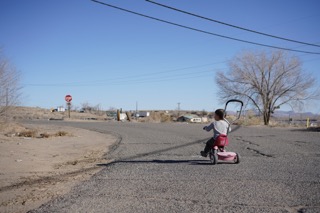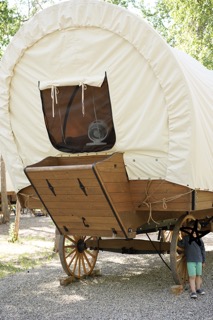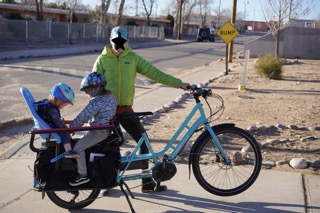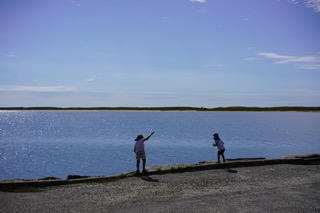
What’s a Reader Case Study?
Case Studies address financial and life dilemmas that readers of Frugalwoods send in requesting advice. Then, we (that’d be me and YOU, dear reader) read through their situation and provide advice, encouragement, insight and feedback in the comments section.
For an example, check out the last case study. Case Studies are updated by participants (at the end of the post) several months after the Case is featured. Visit this page for links to all updated Case Studies.
Can I Be A Reader Case Study?
There are four options for folks interested in receiving a holistic Frugalwoods financial consultation:
- Apply to be an on-the-blog Case Study subject here.
- Hire me for a private financial consultation here.
- Schedule an hourlong call with me here.
- Schedule a 30 minute call with me here.
→Not sure which option is right for you? Schedule a free 15-minute chat with me to learn more. Refer a friend to me here.
Please note that space is limited for all of the above and most especially for on-the-blog Case Studies. I do my best to accommodate everyone who applies, but there are a limited number of slots available each month.
The Goal Of Reader Case Studies
Reader Case Studies highlight a diverse range of financial situations, ages, ethnicities, locations, goals, careers, incomes, family compositions and more!
The Case Study series began in 2016 and, to date, there’ve been 97 Case Studies. I’ve featured folks with annual incomes ranging from $17k to $200k+ and net worths ranging from -$300k to $2.9M+.
I’ve featured single, married, partnered, divorced, child-filled and child-free households. I’ve featured gay, straight, queer, bisexual and polyamorous people. I’ve featured women, non-binary folks and men. I’ve featured transgender and cisgender people. I’ve had cat people and dog people. I’ve featured folks from the US, Australia, Canada, England, South Africa, Spain, Finland, the Netherlands, Germany and France. I’ve featured people with PhDs and people with high school diplomas. I’ve featured people in their early 20’s and people in their late 60’s. I’ve featured folks who live on farms and folks who live in New York City.
Reader Case Study Guidelines
I probably don’t need to say the following because you all are the kindest, most polite commenters on the internet, but please note that Frugalwoods is a judgement-free zone where we endeavor to help one another, not condemn.
There’s no room for rudeness here. The goal is to create a supportive environment where we all acknowledge we’re human, we’re flawed, but we choose to be here together, workshopping our money and our lives with positive, proactive suggestions and ideas.
And a disclaimer that I am not a trained financial professional and I encourage people not to make serious financial decisions based solely on what one person on the internet advises.
I encourage everyone to do their own research to determine the best course of action for their finances. I am not a financial advisor and I am not your financial advisor.
With that I’ll let Johanna, today’s Case Study subject, take it from here!
Johanna’s Story

Hello Frugalwoods! I’m Johanna, I’m 36 and my husband Matt is 37. We live on a small island off the coast of the Northeastern United States with our two children, ages 3 and 5, and our small, loveable mutt. I’m a veterinarian and Matt is a primary care physician. After Matt finished residency in 2019 in a mid-sized city, we packed up and moved to the Navajo Nation (the Rez–yes you can call it that) and lived in a border town there for almost 3 years.
We had very cheap hospital housing and Matt was able to bike down the street to the hospital. I was commuting to the nearest town 45-50 minutes away 3 times a week. There were many things we loved about our Rez life. We had a close-knit community with lots of kids that lived in the same housing compound. We had many southwest adventures! Matt had a stable 4 day work week and often had 3-4 day weekends. The pay was great and Matt had lots of time off. My job was exciting and I learned a ton and developed many new skills. Matt and I both had colleagues of the same age, which made for fun work environments.
The Move Back East

However, the commute was wearing on me and I felt a longing to be back amongst trees and the ocean. We decided to move back to the East Coast about a year ago and settled on this little island, which we felt would be less “rat-racey” but close enough to family for us to build a community.
We’ve been here about a year and, while there are many perks, it doesn’t feel right.
Our job satisfaction has decreased. Matt and I both work with older folks and there are no opportunities for professional growth. The cost of living is astronomical. While we are somewhat protected, I still feel the creep of the fast-paced East Coast mindset here that we were able to shed while living on the Rez. We don’t feel as fun and adventurous as we did on the Rez. It’s hard to get off-island with a car and we often have to rely on family to pick us up.
Johanna’s Career
I recently left my full-time job as a veterinarian and started doing per diem shifts at the nearby animal ER. The hours have been sparse though and I’m not sure if I’m going to pick up more shifts or pull the kids from daycare and homeschool them instead. I make about $1,300 per shift pre-tax.
Where to Move Next?

Matt and I are searching for a lifestyle that’s slow-paced and meaningful. We’d both like to work less but aren’t sure if we’re able to with our current retirement savings. Matt recently had an opportunity to do a 2-year fellowship that would have taken us to East Africa and back to the Rez for 2 years. We decided not to take it this time, but could envision doing something like this in the future. Matt is currently taking a global health course and wants to work in Rwanda for several months at some point.
What’s the best part of your current lifestyle/routine?
- Our current lifestyle affords us the ability to bike most places! I take the kids to preschool on my e-cargo bike. They love it. Then I zip down a bike path to work. Matt bikes a few miles into work. We are close enough to town that we can walk or bike to the library, grocery store, pharmacy.
- I love that I can walk out my door and be in the woods or walk down to a beach.
- There are a wealth of kid activities that involve them in the community and history of the island. The land preserve and trail systems have kid friendly meet ups to hike together or explore a new area outside. There’s a grand old barn that you meet in during the winter to ride bikes and play with toys they put out. A block away from us is a center just for families that has a swap shop and many play groups.
What’s the worst part of your current lifestyle/routine?
-
Brick oven pizza in oven made by Matt The summer brings affluent summer residents and visitors. They add to the traffic and can be a bit entitled especially when dealing with them at work.
- The pace of life also increases in the summer and it feels almost stressful to have to soak up the good weather and the beaches before winter.
- Housing here is not affordable for us. Fixer uppers start at $800k-$900k. Many people move out of their homes during the summer season in order to to rent them out to make mortgage payments or extra income. Groceries are expensive here as well as gas and other basic goods.
- Our jobs are not great. They pay well, but mentally are exhausting. In order to live here, Matt would likely have to continue working full-time at his current pace, which honestly is taking a toll on him. My job is not stimulating for me and I often feel bored and resentful. There is no professional growth for us and nowhere to move laterally here on the island.
- We also feel a bit trapped here. There is always a lot of logistical planning for trips: Do we take the car off island and pay that high cost? Do we walk on the ferry and have to arrange for pickup at the other side? And then sometimes the ferry doesn’t run if winds are high.
Where Johanna and Matt Want To Be in Ten Years:
- Finances:
-
Durango playground views Be on track for retirement.
- Have the ability to work part-time.
- Have the ability to travel occasionally.
- I’ve never known how to apply the retirement calculation to our situation. We should have 2x our income saved by now but that seems unfair given that we’ve only had this income for about 4 years. Matt entered the true workforce late and his salary jumped from $60k a year to $200-$300k.
-
- Lifestyle:
- I’d like to live in a small community and have friends.
- I want ducks!
- I want to own a house that I can work on with a yard to garden!
- I want to be able to bike most places and be able to access nature.
- I’d like Matt to be home more and not drained from work.
- Career:
- Matt would like to continue working but have meaning in his work and be financially secure enough to work part time at some point.
- I would like to work per diem at an emergency hospital. This would give me the work stimulation I like, it pays well, and I could control how often I work and when.
Johanna & Matt’s Finances
Income
| Item | Gross Monthly Income (total BEFORE all deductions) |
Deductions & Amount | Net Income (total AFTER all deductions are taken out, such as healthcare, taxes, employee parking, 401k, etc.) |
| Matt’s Income | $24,844 |
1. Taxes $1485 ($5940 monthly)
2. Before tax deductions (dental/vision/healthcare/ 457, 403b) $1061 ($4244 monthly)
3. After tax deductions $900 for housing benefit ($3600 monthly)
4. Basic life insurance $4 ($16 monthly)
Total deductions monthly: $13,800
|
$11,044 |
| Johanna’s Income | $1,300 per shift. Since I’ve just started doing these per diem shifts, I have no idea how many hours I’ll be working a month. Nor do I know what my taxes will be! | Taxes: unknown | TBD |
| Monthly subtotal: | $11,044 | ||
| Annual total: | $132,528 |
Debts
| Item | Outstanding loan balance (total amount you still owe) |
Interest Rate | Loan Period/Payoff Terms/Your monthly required payment |
| Matt’s medical school loans | $108,000 | 0% | In deferment until May 2023 pending supreme court decision |
Assets
| Item | Amount | Notes | Interest/type of securities held/Stock ticker | Name of bank/brokerage | Expense Ratio |
| Savings Account | $140,000 | Emergency Fund plus possible house downpayment fund?? | Earns 0.25% interest at this amount | USAA | N/A |
| Matt’s TSP | $64,000 | Federal Retirement account with 2050 target | TSP | ||
| Johanna’s Vanguard Roth IRA | $61,400 | VBTLX, VTIAX, VTSAX | Vanguard | 0.05%, 0.11%, 0.04% | |
| Vanguard Targeted Retirement | $50,000 | VFORX | Vanguard | 0.08% | |
| Matt’s Roth IRA | $46,000 | FXNAX, FSKAX, FSPSX | |||
| Vanguard total Stock | $34,000 | VTSAX | Vanguard | 0.04% | |
| Matt’s 403b | $18,000 | ||||
| Matt’s 457b | $18,000 | ||||
| Joint Checking Account | $10,000 | Checking account used to pay bills | USAA | N/A | |
| Kid 1 account | $6,777 | Cash gifts we receive for the kids go here; not sure if we should do something else with these? | 0.01% interest | USAA | |
| Kid 2 account | $6,777 | Cash gifts we receive for the kids go here; not sure if we should do something else with these? | 0.01% interest | USAA | |
| Total: | $454,954 |
Vehicles
| Vehicle make, model, year | Valued at | Mileage | Paid off? |
| Subaru Outback 2010 | $2,000-$3,000 | 160,000 | Yes |
Expenses
| Item | Amount | Notes |
| Daycare | $2,838 | Both kids, 5 days a week. Wow that’s a lot! |
| Groceries | $1,200 | Some of this is a bulk purchase of coffee/rice/beans but still, wow, food costs are $$$ here!!! |
| Travel/ferry tickets/vacations | $400 | Ferry tickets, ferry car tickets, vacations (usually camping or staying put in a cabin). |
| Storage Unit | $171 | Rental house is furnished. This was the cheapest option until the company got bought and they jacked the price up to this amount. |
| Life Insurance for Matt | $164 | Term life insurance |
| Disability insurance for Matt | $150 | Work disability |
| Farm CSA | $143 | Summer/winter CSA (veggies and eggs) |
| Life and disability insurance for Johanna | $110 | Term life insurance and disability for work |
| YMCA membership | $94 | I use this 4-5x a week |
| Car Insurance USAA | $78 | 1 car |
| Gifts: kids and family for holidays | $65 | I get most of our kids gifts from the thrift shop. Sent gift cards to all my nephews for birthday/Christmas. |
| Cell Phone (Visible Wireless) | $50 | For 2 plans |
| Diapers | $50 | For nighttime diapers for both kids and daytime diapers sometimes for younger kid |
| Gas for car | $50 | We fill up maybe once every 4-6 weeks |
| Household goods | $50 | Soap, dishwasher stuff, thrift store scores |
| Renter’s/Valuable Insurance USAA | $48 | Renters insurance covers house and storage |
| Clothes/Misc | $40 | Mostly from thrift store, sometimes new if we need something specific for kids |
| Restaurants/take out/convenience food | $40 | Occasional breakfast sandwich/coffee out or lunch out if I forget mine at home or if caught out with hangry kids. Trying to cut back. |
| Entertainment | $25 | Maybe a rented movie, maybe a museum, a new book we can’t find in library |
| Dog food/treats/meds | $20 | Perks of being a vet is that you don’t take your dog to a vet? |
| Haircuts for Johanna | $16 | Two cuts per year including tip (everyone else is cut at home) |
| Bike maintenance/bike gear | $15 | Averaged expense to maintain bike/new gear |
| Food Co-Op membership | $9 | Paid annually (will likely stop this in April) |
| Matt medication | $7 | |
| Apple iCloud Storage | $3 | For photo storage |
| Monthly subtotal: | $5,836 | |
| Annual total: | $70,032 |
Credit Card Strategy
| Card Name | Rewards Type | Bank/card company |
| Signature Visa | cash back | USAA |
Johanna’s Questions for You:
-
Cargobike life How much do we need for retirement given our circumstances?
- Should I open different retirement accounts for myself since I’ve never had employee matched options?
- Are we doing enough? Are we doing it right?
- We have a tremendous amount in our “emergency fund,” which I was thinking we’d use for a down payment at some point. Every tax season we also get hit with a huge payment ($20K last year!) and that will come from this account. Is there something else I should be doing with this money?
- To what degree does Matt need to just put his head down to maximize earning potential so that he can back off later but still be financially secure? In other words, how much do we need to have banked in retirement so that Matt can work part time?
Liz Frugalwoods’ Recommendations

I’m thrilled to have Johanna and Matt as our Case Study today! They’ve made some fabulous financial choices over the years and it’s exciting to work with them at this juncture of life. They’ve saved and invested an impressive amount and should feel very proud!
I hear in Johanna’s write up that she and Matt share a desire for more freedom and flexibility in their lives. I also hear pretty clearly that the island they live on is not the right fit. While Johanna is clear-eyed about the benefits of island life, it seems that the negatives outweigh the positives at this point.
I think their biggest challenge right now is that they’ve outlined competing priorities/goals:
- A desire to live and work internationally for a period of time
- A desire to work fewer hours
- A desire to move away from the island
- A desire to buy a house
- A potential desire for Johanna to change her work/childcare schedule
I think all of these goals are possible for Johanna and Matt, but probably not simultaneously and not immediately.
The question for them to answer is: which of these goals do they want to do first?

From a financial perspective, it seems like pursuing living-and-working-abroad now might be most viable because:
- They don’t own a home
- Their kids aren’t in school yet
- Johanna’s job is per diem, so quitting wouldn’t create too much upheaval for the hospital or the family’s finances
- If they’re able to sever their lease and thus not pay for a US house while abroad, that’d be ideal
- They already live well below their means, so a potentially reduced international salary for Matt shouldn’t be an impediment
It seems like a more challenging proposition to delay international living to a time in the future when both kids are in school, Johanna is working full-time AND they own a home. That’s not to say it can’t be done in the future; but, the more tethers you have, the harder it is to leave the country for a period of time.
Furthermore, if they’re able to swing international life in the near future, that could provide them with the space and time to consider where in the US they want to make their longterm home. I sense that they’re really trying to make it work on the island because they’re already there, but in many ways that’s a sunk cost fallacy. If they know–deep down–that life on the island is not the right fit, staying longer probably isn’t going to change their minds.
Where To Live and Work In The US?
Matt and Johanna both work in an in-demand field, which provides them with a wealth of different work options–as they’ve already experienced through their life on the Navajo Nation Reservation. I encourage them to think expansively about what configuration of work appeals to them.

Johanna outlined a clear vision of the type of place she’d like to live:
- I’d like to live in a small community and have friends.
- I want ducks!
- I want to own a house that I can work on with a yard to garden!
- I want to be able to bike most places and be able to access nature.
- I’d like Matt to be home more and not drained from work.
I think that sort of small town life is available in many parts of the Northeast–assuming they want to remain near their families. The downside of the Northeast, of course, is the cost of living. While the island sounds especially pricey, most of the Northeast is expensive. Even my teensy tiny town in Vermont experienced astronomical housing prices over the past few years. But, there’s no imperative for Johanna and Matt to buy a home right now–or ever, really.
Owning a home is not a prerequisite for financial stability and success. It can be one element of a sound financial portfolio, but it is not mandatory. I sense that Johanna and Matt feel like they “should” buy a house, but from a financial perspective, that’s not strictly true. I am a great lover of The New York Times’ Is It Better To Rent or Buy? Calculator and I encourage anyone grappling with this question to check it out.
Johanna asked, “How much do we need to have banked in retirement so that Matt can work part time?”

This question is calibrated largely upon how much they need to spend every month–both now and in retirement. If you spend very little, you can afford to earn very little. If you spend a lot, you’ll need to earn a lot. That’s an oversimplification to be sure, but the premise holds up.
This quickly becomes a lifestyle question:
- What are you willing to sacrifice in order to work fewer hours?
- What is most valuable to you?
- Would you be willing to buy/rent a small, older home in order to work less?
- Would you be willing to move to a lower cost of living area in order to work less?
There’s no right or wrong, but when we have the mindset that we don’t need to continually inflate our lifestyles, buy new cars, eat out every night, etc, we have the room to potentially work less and consequently, earn less. It’s all about trade-offs.
Many of Matt and Johanna’s questions will be answered based upon where they decide to live, whether or not they buy a home, whether or not Johanna wants to work more hours, etc.
They’re in a great financial position, so there’s not a hair-on-fire mandate for them to change anything drastically at this point. The question for them to grapple with is really: how do you want to spend your time? What do you want your life to look like? They don’t have the assets to fully retire early, but they have enough to consider non-traditional modes of life and work.
Johanna also asked “To what degree does Matt need to just put his head down to maximize earning potential so that he can back off later but still be financially secure?”
It depends. One route would be for both of them to buckle down now, earn as much as possible, save every penny and then fully retire early. Another route is to work part-time for the rest of their lives. Another option is somewhere in between those extremes. Let’s take a look at their numbers.
Asset Overview
Cash: $150,000

Between their two accounts, Matt and Johanna have $150k in cash. Your cash equals your emergency fund and your emergency fund is your buffer from debt.
- An emergency fund should cover 3 to 6 months’ worth of your spending.
- At Johanna and Matt’s current monthly spend rate of $5,836, they should target an emergency fund of $17,508 to $35,016
What this means is that they are overbalanced on cash (in other words, they have too much of it). While this is a good problem to have, there are downsides to keeping so much money in cash.
Having this much cash only makes sense if:
- You intend to quit your jobs and not immediately find others;
- You have major expenses planned for the near-term, such as: buying a house, buying a car, a significant HOA assessment, etc.
Outside of those two scenarios, it becomes a massive opportunity cost linked with the fact that your cash is losing value every day since it is not keeping up with inflation.
→When you’re overbalanced on cash, you’re missing out on the potential investment returns you’d enjoy if your money was instead invested in, for example, the stock market.

If Johanna and Matt do want to buy a home in the near term, then it absolutely makes sense to keep this money in cash. On the other hand, if they don’t think they want to buy a home, they should explore more profitable ways of leveraging this money.
At the very, very least, they should move this cash into a high-yield savings account that’ll earn them interest. Their current savings account earns an abysmal 0.25% in interest. There are many accounts out there offering far better interest rates right now.
For example, as of this writing, the American Express Personal Savings account earns a whopping 3.75% in interest. This means that in one year, their $150,000 would earn $5,625 in interest!
Short to Medium Term Investment Options To Consider for Their Cash
Another class of products for Johanna and Matt to consider for their cash are short to medium term investment options, such as CDs, Money Market Accounts, and Government Bonds. With all types of investments, you’re looking to maximize your return, but ensure that the time horizon works for your plans. It’s kind of like a ladder or hierarchy of options:
- At the most accessible end are high-yield savings accounts because you can withdraw your money at any time, in any amount and with no penalty.
- At the least accessible end are retirement investments because you have to be age 59.5 before you can withdraw your money without penalty.
- In the middle are short and medium-term investment options, which can make a lot of sense if you anticipate needing this money in, say, three years in order to buy a new car.
Here’s how a few of the most common short and medium-term options work:

1) Certificates of Deposit (CDs) lock up your money for a specified time period and return a pre-determined interest rate.
- Pros:
- CDs are very straightforward because you know in advance how long your money will be inaccessible and exactly how much you’ll receive in return (assuming you select a fixed rate CD).
- They are available for different periods of time—anywhere from a few months to several years—and offer different rates based on the length of time you select.
- Make sure to purchase a CD from an institution that is FDIC insured.
- Cons:
- The rate of return is sometimes not much (or any) more than a high-yield savings account. If you want to purchase CDs, shop carefully and keep in mind current savings account interest rates.
- Some CDs offer fixed interest rates and others offer variable rates. Know in advance which you’re most comfortable with.
Similar to high-yield savings accounts, CDs are offering some very high (and great!) interest rates right now.

2) Money Market Accounts (MMAs) typically provide the same features as traditional checking and savings accounts, but with a higher interest rate.
- Pros:
- Can have a higher interest rate than a high-yield savings account.
- May offer check-writing and/or debit card capabilities straight from the MMA.
- They are FDIC insured, up to $250k per bank, at FDIC insured institutions.
- Cons:
- They can be less flexible than a regular old savings/checking accounts.
- Their interest rate is typically variable (meaning it changes as the market fluctuates).
- MMAs usually require a minimum account balance as well as a minimum initial deposit to open. There can be a monthly fee if your account total drops below the required minimum balance.
- Depending on the account, they may allow only a limited number of transactions
3) Government Bonds (including US Savings Bonds and Treasury Bonds) are another very low-risk short-term investment option. Similar to CDs, Government Bonds offer a specified interest rate in exchange for “locking up” your money for a specified period of time.
- Pros:
- Considered very low-risk
- There’s often both a fixed and a variable interest rate within each bond
- Cons:
- The interest rate can be lower than a high-yield savings account (especially in our current interest rate environment).
- Unlike with a high-yield savings account or MMA, you can’t access your money until the predetermined date at which you’re allowed to cash out your bond.
- The term is often very long (like ~30 years), though you can typically cash them out earlier—you just need to read the fine print on any penalties that might apply.
- There’s often a limit to how much you can buy in bonds per year. For example, you can only put a max of $15k per year into a Series I Savings Bond.
Note that Government Bonds, CDs and Money Market Accounts aren’t a viable or lucrative long-term investment strategy in light of how low their returns are. For long-term investments (i.e. five years or longer), the standard advice is to instead invest in the stock market.
Bottom Line: Do Something To Leverage Your Cash
With all of these options, Johanna and Matt should retain a fully cash emergency fund (in a high-yield savings account) of three to six month’s worth of their expenses. Regardless of what they decide to do in terms of moving and/or purchasing a home, Matt and Johanna should investigate moving their $150k into one of the above vehicles in order to earn interest on it. What you don’t want is for your money to be sitting around not earning any interest.
Retirement: $257,400
Between all of their retirement account, Matt and Johanna have $257,400.
Let’s see how this stacks up against Fidelity’s Retirement Rule of Thumb:
“Aim to save at least 1x your salary by 30, 3x by 40, 6x by 50, 8x by 60, and 10x by 67.”
Since they’re in their late 30s, let’s go with 2x, which means they should target having at least $596,256 (2 x $298,128). Johanna articulated that she doesn’t find this retirement metric very useful, and so, another way to think about retirement is thus:

What you want to be able to do in retirement is drawdown a sustainable percentage of your overall investment portfolio to live on each year.
You want to have enough invested to allow you to do this for the duration of your retirement. I highly recommend using the “Rich, Broke or Dead” calculator to game out whether or not you’re likely to run out of money in retirement.
Many experts consider 4% to be a sustainable rate of withdrawal and so, if Matt and Johanna were to withdraw 4% of their current retirement investments, they’d have $10,296 (4% of $257,400) per year to live on (plus Social Security).
Since Matt and Johanna aren’t planning on retiring now, this isn’t an issue for them. The point is that Matt and Johanna can utilize the 4% withdrawal rate calculation to check in on their retirement investments over time. This gives a slightly more precise idea than the above Fidelity metric since it shows you, in real dollars, how much you’d be able to withdraw to live on.
The reason to invest for retirement—as opposed to saving cash for it—is threefold:
- There are tax advantages to utilizing retirement accounts
- There are grave disadvantages to cash (as outlined above: the opportunity cost and not keeping up with inflation)
- There are advantages to investments (namely, anticipated rate of return)
Taxable Investments: $34,000
Matt and Johanna also have taxable investments (in other words, non-retirement investments) of $34k, which they can add into their overall 4% withdrawal rate calculation.
Increase Retirement Contributions
Since they have room in their budget, I suggest Matt and Johanna increase their annual retirement contributions. The max allowable contribution into a 403b (or 401k) is $22,500 in 2023 as a pre-tax contribution (if you’re under age 50). Matt could increase his withholdings to reach this annual maximum.

Since Johanna doesn’t have an employer-sponsored account at present, she can put a max of $6,500 in 2023 into an IRA. She likely is not eligible to max out a Roth IRA as I believe their MAGI (modified adjusted gross income) is above the $218k cap outlined by the IRS in this chat. Regardless, she wouldn’t want to do Roth anyway since they’re in a high tax bracket.
- Johanna might also be able to open a solo 401k depending upon how her per diem work arrangement is structured. She’d need to ask her HR department about this.
Maxing out Matt’s 403b and Johanna’s IRA will bring their total investment for retirement this year to a combined $29,000, which according to their listed expenses, they can do! The difference between their annual expenses ($70,032) and Matt’s take-home pay ($132,528) is $62,496. And this doesn’t even account for Johanna’s salary since she recently changed jobs and isn’t sure what her take-home pay will be each month. In light of that, it’s well within reach for them to begin maxing out their contributions now in order to hit the max allowed contribution limit for 2023.
Other Retirement Accounts?
I wasn’t clear which of Matt’s listed retirement accounts are current and which are former; but, it’s possible he’s eligible to contribute to other employer-sponsored accounts as well.
If he doesn’t have access to any other employer-sponsored accounts, Matt can also open and max out an IRA (at $6,500 for 2023), which would bring their combined max contribution to $35,500. This would still leave them with $26,996 of leftover money each year to put either towards a downpayment on a house OR into their taxable investments account. The math on that is: $62,496 (difference between income and expenses) – $35,500 (max allowable retirement contributions) = $26,996.
Kid Accounts: $6,777 each ($13,554 total)

My advice on these two accounts mirrors my advice on Matt and Johanna’s cash: do something with this money to earn some amount of interest. Based on when they envision giving this money to their kids (age 18? age 21? for college expenses?), they can select the investment vehicle that makes the most sense for their time horizon and risk tolerance.
In addition to all of the above mid-term options I outlined (CDs, etc) and plain old taxable investments, this money could go into 529 College Savings Plans. 529s vary state by state in their effectiveness/utility, but it’s something for them to look into and consider. Additionally, the primary advantage to a 529 is often the tax advantage, which could be very worthwhile for them given their high income.
Another Option: Save A TON and Retire Early
Another option I see for Matt and Johanna is to further reduce their already very reasonable budget. The only reason to do this would be to shore up their savings and potentially retire early or move to part-time work in the near future. I don’t think it would be easy or particularly fun to slash their budget to the bone; however, most of their spending is discretionary or reduceable and so, they have a lot of room to save more (if they chose to go this route).
Another factor here is that they’d need to make the determination of whether Johanna wanted to go back to full-time work OR pull the kids out of daycare. Since daycare is so astronomically expensive, in this option, they’d need to either increase their salaries or eliminate daycare.
Just throwing this idea out there in case it resonates with Johanna and Matt.
Summary:
-
Pre-clamming dances Discuss and determine which of your stated goals you want to reach first:
- Would it make sense to prioritize international living now before you own a home and before the kids are in school?
- What are you willing to sacrifice in order to make less work a possibility?
- Do you want to maximize earnings and savings for the near term in order to fully retire early?
- Put your cash into something that’ll earn interest; either a high-yield savings account, a CD, a Money Market account, or similar.
- If you determine you don’t want to buy a house in the next ~5 or so years, consider putting your cash (above your emergency fund) into your taxable investment accounts.
- Explore putting the kids’ money into something that’ll earn interest, such as taxable investments, 529s, or one of the other medium-term vehicles listed above.
- Max out your three retirement vehicles starting this calendar year:
- $22,500 into Matt’s 403b
- $6,500 into Matt’s IRA
- $6,500 into Johanna’s IRA
- Look into the possibility of Johanna opening a solo 401k.
- Don’t be afraid to move away from the island if it isn’t the right fit for your family. Don’t get trapped by the sunk-cost fallacy!
Ok Frugalwoods nation, what advice do you have for Johanna? We’ll both reply to comments, so please feel free to ask questions!
Would you like your own Case Study to appear here on Frugalwoods? Apply to be an on-the-blog Case Study subject here. Hire me for a private financial consultation here. Schedule an hourlong or 30-minute call with me here, refer a friend to me here, or email me with questions ([email protected]).
Wondering about hiring me for a consultation? Grab 15 minutes on my calendar for free to discuss!












Joanna and Matt, my first thought is I want to hang out with you! I’m a primary care doctor who probably should have been a vet living with my assortment of misfit animals including a flock of ducks. Ducks are so adorable. As an aside, ducks and chickens are so hard to get reasonable vet care for. I wish someone would start a mobile poultry veterinary service. Any interest? 🙂
I don’t have much advice to offer financially, I think you are doing great. With Matt’s loans in deferment now I wouldn’t do anything differently, but if the time comes that you do need to pay them off I might consider doing it early. For me that was a huge weight off my shoulders, but maybe you won’t get the same mental benefit.
I also think medicine, especially primary care, is in such a bad place right now. My vet friends also seem exhausted. Over the last 10 years I have worked different degrees of full and part time. Currently I work 0.6 FTE, 20 hours of clinical work and some additional med student teaching. This is lifesaving for me and my family – my husband works full time in a different field. Matt is so early in his career, I think trying to grind it out for 30 more years is a recipe for disaster. If he could cut back to 3 or 4 days a week – making it truly 4 days, not letting the EMR creep in – that might make it possible to stay in the game for longer, or until something changes in the healthcare system.
It also may not be possible on your island, but a lot of people are looking into the Direct Primary Care model. Probably Matt knows about this. I have one friend who has opened a practice and is super happy. If you decide you want to plant roots somewhere this might be a good option.
I hope your family finds happiness. Financially it seems like you are doing great, good luck with the work-life balance.
What kind words Kate. I actually know very little about ducks or chickens, except that I want them. Yes primary care seems to be a battleground these days. I feel for all of you PCPs and all the charting and messaging and callbacks you have to do.
Thanks for the thoughts- will look into these things! Hang in there yourself- hope the medical climate changes for the good of everyone 🙂
When you have a history of becoming dissatisfied with the place you live…and then moving to another place that you also end up dissatisfied in…and you don’t know where in the country or the world you want to live…then it’s a good time NOT to buy a house. And a good time to do some serious introspection.
As a feminist, it’s sad to see Joanna leaning out of the workforce despite her high earning capacity. Really think about whether you want to move in the direction of being financially dependent on your husband. That is a gamble that has worked out poorly for a lot of women.
You are entering into your top earning years, and this is a good time to maximize your income in order to set yourself up for a secure (and potentially early) retirement. Think about what really matters to you in a place to live and work. Go live and work there. Don’t quit your job.
Interestingly I had a very different take on Joanna’s work. I love the idea of working per diem right now to keep up skills while kids are young. In another season of life working more may make more sense.
As a feminist, it’s great to see Joanna deciding what she wants out of HER life rather than continuing along a path that might not be working for her. I’ll be interested to hear what she chooses given all the good advice in this post.
I thought that feminism means women have a choice to work or stay home or do a little bit of both. Staying home and possibly homeschooling one’s children is a wonderful thing to do! And if she can work a little on the side to keep up her skills, that sounds ideal!
Yes, I’ve worked PRN for 15 years and it’s been great for work and family balance. I have many coworkers who would like to work away less than they do. Being frugal and on the same page with my husband has allowed us to have more time with our kids and also means we’ve never had to pay for childcare.
I’m disappointed to see this comment, but specifically to see it posted under the guise of feminism. That somehow making decisions with your partner as a unit is “taking a gamble”. If we’re talking feminism, I want a world where all women & parents in general get to make work and childcare decisions because THEY WANT TO, not because they’re financially forced to choose one specific option.
While I don’t think staying home with my kiddo full time is right for me right now, I am THRILLED for other women who want and have that option. Regardless of their earning potential. I hope to never simply be “EARNING POTENTIAL” to my family.
I agree. I’m shocked to see such a reductive approach to feminism based solely on capitalism touted as the model. How awesome that Johanna has accomplished so much professionally, is building a family that she loves and created the ability to walk away from her full-time job because she didn’t want to be there and because had six figures in savings built up. That reads as a badass woman owning her life to me.
Shayna The only thing I want to do is give you jazz hands and fist bumps.
I think there are a lot of mis-conceptions about veterinary medicine. It’s not a high earning field. I graduated with close to $500K in student debt and the most I made in a year was maybe $120K. There is great dissatisfaction among veterinarians with our profession- it’s a hot topic on forums and in discussions with my colleagues. I won’t get into specifics because it’s hard to understand if you aren’t in it.
I had the misfortune of being hit by a car as a pedestrian- got an insurance settlement payout and used that to pay off my loans. I supported my husband while he was a resident and now we have discussed that if I wanted to step away from working and enjoy our kids he is A-ok with that. Working per diem I make more per hour than I did working weekly. It’s the best of the situation- I can be at home more and touch base with vet med when I want with a higher payout.
My husband is extremely supportive of my wants and desires- both at home and career wise. He’s the ultimate feminist and should be because he married a graduate of a women’s college and I wouldn’t tolerate anything less.
The last two lines say everything. You married a great man. Good luck with any choices you make! I wish you and your family a wonderful life.
Yes, it works out poorly. Please!! Get your own job that you can contribute your own retirement to. From my experience, he views his retirement as HIS, and if the unfortunate thing happens then he gets mad at having to share HIS retirement with you even though you both decided it was your joint retirement choice.
Shey- it sounds like you have been through the wringer and I feel for you.
Caryatis- I’ll admit I had a hard time responding to your comment. I don’t think it is sad that I’m leaving the workforce because “I have a high earning capacity”. Veterinarians don’t have high earning capacity- I think this is a common misconception. I graduated with close to $500K in debt (paid off but that’s another story).- most vets carry around $200K debt if they were smart and went to an in-state school. Our earning capacity is low, especially in relation to the debt we tend to carry. As for the feminist bit I’ll walk away from the bait- it’s tempting to someone who went to an all-women’s college with required women’s studies courses… okay okay enough keep it civil.
Ha, that last line give me a good chuckle, Johanna 😀 Loved reading your story (which also gave me hope that a less car-dependent, cycling lifestyle is possible in some places in the US!). Nonetheless, I hope you and your family end up living in a place that feels like the perfect fit for you.
Thanks for replying about the Vet pay. My sister is a Vet in a rural Midwest city, and will likely never make a dent in her loans. She loves what she does, but vet school was not a path to monetary freedom.
Liz’s calculations re: how to use your savings and additional income didn’t account for student loan payments that will soon be due or the huge tax bill that you mentioned. You’ll want a buffer in your budget for the student loans and more money in savings for the tax bill.
Also, if you move off-island, you’ll likely have housing costs again.
Good luck! You have the income, you can now explore how to make it work for you.
Surprisingly our taxes were way way way less this year- not sure what we did wrong, or right!
Matt is eligible for loan forgiveness since he has put years working in rural and underserved areas- so it’s really not a priority to us and it is likely that his loans will be forgiven.
Yes we know this about housing costs- which is why we have been able to save so much into an “emergency fund” this past year.
Good morning from a fellow Navajo Nation alum!!! I worked on the Rez in family medicine and boy do your photos bring back memories! We were there for five years, but I also began to crave the trees, rain and landscape of my home in VT. I currently work 50% FTE as a PCP in Vermont and it is much more tenable than any previous work I’ve done (I was a hospitalist at a small ish hospital for five years after leaving the rock). We live in my hometown, so have a lot of connection here, and while we do struggle with some of the things you describe about east coast life, I think VT is in some ways a step removed from that; in particular the “go-go” accumulate more and more tendencies of other east coast locations. If you have any questions about post-Rez life or figuring out how to have quality of life in the current culture of medicine I’m here for it! Love brain storming with other people in the same boat!
Vermont is actually my ideal- Matt has issues with lack of sun and frequency of precipitation and grey skies- I blame the Rez for that 🙂 Convincing him to move elsewhere in NE is hard but he alway wants to stay close to family so….
NOW you tell me Vermont is your ideal 😉 haha. Let me know if you want me and Mr. FW to put the hard sell to Matt–Vermont is THE BEST (I may be biased… )
I would also like to hard sell Vermont. 🙂 This is a very community oriented, connect-with-your-neighbors kind of place. True there isn’t as much sun as the Southwest; I think the slower pace of life, the relative safety, and outdoor recreation opportunities make this a great place to raise kids. Thank you for sharing your story. – signed, another women’s college grad (Anassa Kata!)
Hi! I had three thoughts while reading your case study that I hope are helpful. 1) Definitely take advantage of the solo 401(k) if you can, even if it means changing your employment status to independent contractor. It will greatly help your tax situation and it’s amazing how much you can save annually in one of these accounts (when you turn 50, it’s even higher). 2) If you want to stay in the Northeast, take a look at Midcoast Maine. Quality of life is phenomenal and the attitude is not fast-paced or high-pressure. Most of Maine is a Health Professional Shortage Area, which could have benefits for your husband (for example, when negotiating a work schedule), and there is a growing population of young families. I grew up here and my husband and I returned a couple of years ago after 30 years in the southwest, and it’s been a wonderful move. 3) Have you considered using some of your excess cash to pay down your husband’s student loan? If the interest rate you’re paying on the loan is higher than that of a high-interest savings account, it could make sense.
Best of luck!
Thanks for sharing your case study with us. Since you both have careers that offer some flexibilty and you both apprear to value your qualify of life above other metrics, I would focus on organising your life around part-time work and finding a location where both of you could satisfy that work-life balance in your careers and that caters to your other needs as well (community, nature). In addition to having high-earning jobs, you described a really modest lifestyle that you could support on part-time work. I don’t think that grinding away to secure an early retirement while your children are young and Matt is already feeling burnt-out is a recipe for a satisfying life. You expressed your frustrations with both your jobs on the island, but wow, it seems like such a wonderful place to raise children from all the community services you described. Good luck!
Yes it’s lovely here in some ways but Matt visible shutters every time he leaves (at 6am) and then returns from work (at 7-8pm). It’s not healthy and it’s not sustainable. Matt loves being a doctor in the right setting and it’s hard to see him so agitated and run down by the system.
Come to live in the 1000 Islands Ontario. Easy to get back to NY State. Brockville is 😻
Lol the only thought that comes to mind is that I might freeze and it’s got to be way less sunny there than here. Prove me wrong!
I am 60 and haven’t froze. LOL I don’t know how much colder it is in the winter than where you live.. The coldest days in the winter are usually the sunniest. We have pretty nice weather otherwise.
Hi there,
I am so impressed with all that the two of you have accomplished and the different options you are considering. Just one piece of advice-get off the island as soon as you can. There are lots of cool towns and places in the northeast that would benefit from both of your skill sets. And you would appreciate the freedom and community. From there, you can decide what next steps to take but in the interim, you’ll be happier. 😊.
Hi Nancy- thank you for the kind words. Yes trying to get off, have notified the right people, the clock has started but we just don’t know where yet and have been searching. Matt’s a picky guy!
First off, congratulations on getting through Med school and Vet school with only 100k in debt – that is impressive!!
I have a strong hunch which island you are on (don’t worry I won’t dox you), and I also would not want to live there year-round with a relatively normal salary level. There are a lot of small towns in western Massachusetts, NH, and VT that would be a good fit for the things you are looking for and still be a slower pace of life.
For spending time overseas, it depends a bit on what you will be doing there and how long it will be. If it would be a job that offers free international schooling for the kids, that is very easily doable at most ages. Otherwise I would be looking at opportunities that can be done during summer vacation or looking very seriously at what ages you feel comfortable homeschooling your children. For example, I learned that I don’t have a clue how to tutor my children in reading because curriculums have changed so much in the last 30 years.
You are both so portable with your careers! This can be a blessing and a curse. My partner and I are not very portable (professor and architect) so it’s something I’ve thought about over the years. In your case, I’d use the portability as a chance for exploration. As you already know, different parts of the country have very different lifestyles, so maybe start some research projects focusing on areas you “might like” and take some vacations to those areas to see how realistic they are? That’s what my husband and I did, and we honed in on the Northeast (which, while expensive, has a lot of other perks that matter a lot to us, including family and mountains). I also agree with the poster that said that while the kids are young is a great time to pull them from full-time daycare and spend time at home with them as long as you can keep your skills relevant. I freelanced while my kids were young, so was never “out” of architecture for too long, and when they were old enough for school, I was able to jump right back into a firm, on my terms. (30 hours a week, core hours). Now that’s segued into 30 hours/full-time remote/ full-time flex, but that’s another story! It sounds like getting to the “right place” will be the real key.
Not alot to offer except this… I burned out super early as an optometrist. Fortunately, I live in Texas where it is CHEAP to live. Our particular town, Abilene, is full of kind, thoughtful people and the pace is super slow. Not to get too political, but it’s a very moderate town. And you can easily find pockets of liberal or conservative folks depending on which way you lean. The winters are mild. During the holidays people leave town and it gets even quieter. Drawbacks… no beach, it’s an arid climate, and you have to drive to all of your destinations. But my husband and I have lived all over the country, as well as the world, and we decided to stay here when we both retired because it just FEELS so comfortable. Like your favorite house shoe. Because of this, we were both able to retire here at the age of 53. If the beach is non-negotiable, maybe consider one of the small towns near Corpus Christi, TX. (Port Aransas?) But then you’ll be dealing with tourist season again. Texas protects doctors in case of lawsuits, so it’s ideal for your careers. But every place in the US needs primary care docs. (My twin sister lives on the Big Island of Hawaii and they are desperate for family care doctors.) If you are like me, because of your vast number of possibilities, you are feeling overwhelmed. But my final two cents… look for a place that gives you peace of mind, allows you to work less, and has a lower cost of living so that you can save more. Move now before it gets even harder, and plan to stay so that your kids can grow up with the same cohort throughout their lives, if you think that will give them a good foundation. Good luck!
I have no specific advice except to cheer you on. Sometimes when you have a lot of desires and a lot of possibilities it can cause a temporary state of paralysis. But sharing your story is probably a great first step to winnowing down your choices to the one you want to make right now. Also I wanted to say no decision is irrevocable. I had a successful and satisfying though stressful career for the first 20-odd years of my working life and bowed out of it completely to be at home raising my small children, a decision I rejoiced in. Conventional wisdom (and many naysayers in my life) said I would have a really hard time getting back into the workforce if I ever wanted to. Well. Life is not so full of dead ends, actually. I started freelancing and lo and behold, full-time career number two is rewarding me monetarily even more than career number one did. So don’t be afraid. If you don’t like something you’ve chosen, you can nearly always change.
AMEN TRINA!!! Couldn’t have said it better myself, “no decision is irrevocable.” So, so true. Don’t feel forced into something that’s not right for you–keep exploring until you hit on what does work for you. Another career is there for you if you want it in the future!
Trina this comment is so meaningful. We have felt so paralyzed- decision paralysis- which apparently is a common thing among highly educated white men (and maybe women). And yes I have fears that I will be behind in my career if I ever want to jump back in. But I’ll say that the past year working at a day clinic has stunted my skills already. Since I’ve left and done a few ER shifts I’ve gotten back into the groove of all the cool emergency things and caseloads I use to handle that I feel like a million bucks.
My children are my pride and joy and I relish in raising them. That feels most important to me right now.
Thank you Trina! It’s hard to live an unconventional life if you only take advice from conventional people. And we have also been told that while the next step may seem to be permanent or long term- we can always make changes. Kind of like how we thought this place was “the one” and now here we are. I think what is most frightening is that we will make another “mis-step” and have to move again.
Forgot to mention that the paralysis bit is REAL. Decision paralysis is in full effect over here.
Johanna… give yourself some grace here. How often do we think we’ve found “the one”… whether that’s a place to live, a job, a profession, a partner, a car, so so many things… Life is about exploration and you and Matt sound like explorers. I agree w/Liz that if living in another country is something you really want to do, do it while the tots are at an age where you can pretty easily make it happen. It’s only for a couple years and the oldest will start some schooling while learning an entirely different culture. This is fantastic! You can be researching areas while you’re away. If you do want to be close to family, you can find more affordable options in the NE. You have so many options, but prioritizing your desires and weighing that against when it’d make sense will likely get you closer to your next move.
1. The easiest, quickest and first move you should make is to put your cash into a high yield savings account or CD asap. You could be earning 4 – 5% interest on your savings right now. Instead you are losing money to inflation with that low interest rate. I use Ally Bank for CDs & Barclay’s for high yield savings and have had no issues with them and they regularly have some of the highest rates.
2. Check out the White Coat Investor if you have not already. He does an excellent job of explaining financial concepts and tax situations and his whole site is geared towards medical professionals, so you also get advice on student loan repayment, job options, doctor side hustles, etc. I think you guys will get some excellent financial info from there.
3. It sounds like you might be getting hit with a tax penalty every year for under withholding. If that’s the case I think you should be paying estimated taxes on a more regular basis or increasing your withholdings so you don’t get penalized. I’m no tax expert but the WCI website I mentioned shares a lot of info about that, I’d highly recommend checking it out.
4. If you expect at least one of your kids to go to college I’d put their savings into a 529. Your earnings in the account are not federally taxed and your state may also offer a tax break. We put all gift money the kids receive into 529s. Better yet, give your family the information so they can send the gifts directly to the 529 account instead of passing through you first.
Good luck deciding where you want to move. I don’t think I could handle living in a high tourism area either and being ‘trapped’ on an island can be tough too. Maybe it would be worthwhile to rent an Air B&B in some of the places you are considering before locking yourself in for the long haul?
Agree with all of these things.
Regarding possible places to move to, I might suggest looking at college towns (or towns close to college towns). Many are relatively affordable and offer lots of perks due to the college being there – dining options, cultural offerings, education, bike paths, medical services and thus medical jobs. Many are also in comparatively more rural parts of the country, allowing for slower pace and maybe even chickens! BTW, I’m NOT talking about places like Boston or Austin or Boulder or Berkeley; but check out areas near Madison WI, Asheville NC, Duluth MN, Bloomington IN, Knoxville TN, Eau Claire WI, Rochester MN, Lawrence KS, Iowa City IA, Durham NC, etc.
I was thinking of college towns in the South as well. As well as NC, the Shenandoah Valley and Charlottesville all for the reasons you stated.
A small plug for Winston-Salem, NC. Both Durham and Asheville NC have gotten crazy expensive and WS is less so. Still great community with 3 universities, a college and community college. Outside of the city limits-and by city I mean barely, are several small towns in easy commuting distance.
You are so well situated in terms of education, earning abilities, and sense of yourself. Sometimes the way we find out what we want is by first discovering what we don’t want. Personally, I found my time with young children demanding enough that trying to live internationally would have been overwhelming, but you can decide for yourself how that would feel for you. I’m retired now and have lived pretty much all the things I’ve longed for but definitely not all at the same time! The years of hard work, kids, growing an adult life, are incredibly challenging no matter what you decide and maybe knowing that can help you know that you are absolutely normal for this phase of life and have worked hard to be able to now make some choices.
I totally agree re: #1. I am a die-hard loyalist to USAA, and someone who loves the simplicity of everything in one bank, but their savings rates couldn’t be worse. I moved my emergency fund to Marcus by Goldman Sachs last year and now make 3.90% rather than the unfathomably low 0.01% USAA starts with. At the amount of cash they’re holding, the difference in interest will be staggering. Johanna, I get it – but total loyalty isn’t worth the opportunity cost! 🙂
Oh I know USAA is horrible for investing. I switched my Roth IRA over to Vanguard years ago and have started to dabble over there too. Just opened up that AMEX account I’ve been talking about for years. I move slowly- financial things confuse me and my eyes glass over.
Agree the difference is astronomical. After a year $140K at the 0.25% APY would earn roughly $350 in interest at 3.9% it is over $5,500 in interest! Depending on the timing of their home purchase goals another option would be to move part into a CD and keep part in liquid — if they divided up with $100K in a CD at 5.2% APY (highest I saw advertised online) and $40K in the savings at 3.9% the yield would be closer to $6,000 after a year! Not pocket change by any means – that is equal to about 5-6 shifts at Johanna’s per diem rate!
I would dig into the huge tax bill and make the necessary withholding adjustments to sort it. There’s tremendous mental load that comes with knowing you’ll have a huge burden of unknown quantity. Better to have extra withholding each pay period to absorb it.
This. In fact, it would probably be worth the fee to have an accountant look over your tax situation. They could give you much more specific advice about structuring your retirement vehicles to be efficient as well as helping adjust your withholding so that you’re not hit with a $20k bill come tax season!
You guys are doing great with your incomes, you just need to figure out what you want next. A few things that stuck out to me:
Personally, I would be tempted to take any cash (above emergency fund and tax bill) and pay off the student loans just to be done with them. You could easily build up a cash reserve again with your earning potential.
Could you decide where you want live, then both find part time jobs there? If you alternate work days you can eliminate daycare costs, and hopefully it would help with work burnout.
Also, I think moving abroad sounds awesome!
Best of luck with whatever you do!
I think once the children start school it might be harder to travel and live internationally. Maybe do it now and use your time abroad to consider your next move. Good luck.
Not a lot to offer but if I were in your situation I would think about traveling internationally now if that’s something you’re interested in. It’s much harder to do with older kids especially once they start becoming involved in school and sports.
sorry if I missed this – but not sure about the student loan portion. The issue before the Supreme Court is the debt forgiveness for borrowers up to $20K, NOT the deferrals that started with the pandemic. I don’t know that y’all will qualify for this debt forgiveness because of your income. Does Matt’s job qualify for public service loan forgiveness? My loans were just forgiven through PSLF last year. If not, you may want to pay that student loan off sooner than later to get it out of the way before interest starts adding up on it. (That’s why I needed PSLF, because of the ridiculous 8% interest rate the government charged and the compounded interest.)
I was also wondering why the hold on the student loans. They have an extra $60k per year, apparently, and even if the court rules in favor of the loans, it won’t knock off that much of the total. Unless I’m missing something?
But definitely increase pre-tax retirement, especially if your tax bill is that high.
The student loan repayment question hinges upon the interest rate of the loans. If it’s low, it makes more sense to instead invest their extra cash to reap market returns. Conversely, if it’s a very high interest rate (let’s say 8% or higher), it would make more sense to pay them off. However, if Matt is eligible for PSLF or any other type of forgiveness, it will make the most sense to wait for that to take effect.
Marie- yes Matt has typically qualified for PSLF. I honestly don’t know much about his loans except that he states “he is on top of them” and the type of work he does qualifies him for all sorts of forgiveness and stuff. This is probably a prompt that I should ask him to re-evaluate things again.
One little observation: I grew up in the Midwest and when I moved to New England for a job it took me a good two years to adjust. You’ve only been there 1 year, so could that be part of your discontent? Although I agree that the cost of living and the constraints of an island might not disappear! If you work with mostly ‘older people,’ I wonder if there are a lot of kid-friendly places to go?
I agree with others that I’d jump at an opportunity now to work overseas. Good luck.
It seems to me your deepest desire is to feel settled in the right place. I’d research and plot out options and use any and all vacation time/long weekends etc in the next 6 months to explore potential NE locations. Even after you’re settled and might purchase a home there are plenty of ST overseas options (summers, school breaks). And as someone wise said: no decision is irrevocable. Life is a series of course corrections!
I am on board with Shelby’s plan. Find out where you want to be in 5 years, ( family friendly town, great schools, cultural opportunities, etc) Make that your plan. Determine what will be your approximate income and costs. Set up your savings plans accordingly. Now go explore the world.
When you come back in 5 years you will be able to settle down and enjoy life with your family. Although not for me it sounds like a great life plan.
Question about Mrs. FWs take on Roth IRAs: “Regardless, she wouldn’t want to do Roth anyway since they’re in a high tax bracket.”
Wouldn’t a Roth IRA then be helpful because it would allow them to withdraw some funds in retirement entirely tax free? All of their other funds will be taxed at withdrawal so wouldn’t a Roth offer some diversification?
Would love it if someone could weigh in/explain to me!
The way I’d interpret that is even if they could open a Roth (given their high income right now, likely they’re phased out), they’d be paying their current high tax bracket on any amount saved. Presumably when they retire, they’ll be in a significantly lower tax bracket, and thus would pay less taxes overall when they withdraw the money, even after accounting for that tax-free growth. That’s my hunch…
I had exactly the same thought! My husband and I are both physicians so we are in a high tax bracket also. We max out back door Roth IRAs every year. Who knows what tax rates will be in the future and having tax free money in retirement is really valuable. I believe that Joanna and Matt’s current income level is too high for a deductible IRA contribution currently, so if they made a traditional IRA contribution, they wouldn’t be able to take a tax deduction now anyway. So there really isn’t a benefit. And it doesn’t look like they have other traditional IRA money, so they won’t be hit by the pro rata rule when they convert it. I definitely vote for the back door Roth IRA!
Stephanie- I believe I have been doing a backdoor IRA for a few years as recommended by white coat investor. I just went onto Vanguard to see if I could open my own traditional IRA and it told me I can’t since I’ve already contributed for 2023 by converting my rollover IRA to my Roth IRA. So I guess I’ve been doing that right. Just have to get Matt on board and have him figure out how to do a backdoor Roth for himself- he’s tried but has royally screwed it up several years in a row and gave up!
Betterment’s savings account are paying 4.35% right now! https://www.betterment.com/cash-reserve
Also wondering if Johanna’s per diem contract income will be W2 or 1099 income? If 1099, they could also hugely maximize a SEP-IRA and save 20% of her net contract income in retirement!
Great case study.
Thank you for sharing! Also someone here to cheer you on! We are in similar boats as far as age and occupations and age of our children (although I’m not a veterinarian, but am working outside the home on a very part time basis). My husband is also a pcp. We live in spokane wa which is so ideal for us (our families all live on the west coast). We had some of the same requirements for location as you did and it is such a wonderful place that we love. My husband works 4 days and is overall happy in his job and career. We are very aware and careful about how burnout may affect him so are planning accordingly (will likely cut down to 3 days or 4 shorter days in a few years once we’re done with pslf). I do think location makes a big difference in overall happiness (especially in medicine, some places are just better places to practice medicine) and so great you can explore some options now! Best of luck!!!
Am I missing where she listed their rent amount? I don’t see it in expenses.
It’s a pre-tax deduction from Matt’s paycheck
Thank you
Wow, you’ve done a really great job financially and professionally – congratulations. Given the significant change in your employment status, and the fact that your tax liability is $20k every year, to me step number one is to find an accountant quickly who can advise on your best retirement vehicles, the amount you should be withholding, and the student loans. It seems like there’s a big guessing game here which is not compatible with your financial planning process.
Also, if you want to maintain the flexibility of your employment, which is awesome, could you diversify a bit so you have multiple revenue streams? Could you do private practice one day a week and the per diem approach too?
For some reason this tax season we only have to pay a few thousand, and got some money back from the state. It makes me think we did something wrong last year. I’m such a novice at finances and anytime I try to educate myself my eyes go all blurry and my brain hurts. It’s probably worth the hassle to find a good CPA that can help us with very specific situations we have.
As far as employment what you’re suggesting sounds like what I’m already doing. I’m currently working emergency/urgent care medicine which pays higher than general practice. I’ve left it open with my old clinic that I may return per diem in June- just taking a break for now which I am lucky to be able to do.
Yeah, I agree, I think it’ll be well worth your time and money to hire an accountant to do your taxes.
My first thought was that you may enjoy living in southern rural Utah (Think Kanab, Cedar City, Orderville, outside of St. George, etc.). It’s quiet, nature is everywhere, and I know people who are hiring Vets and Doctors in the area (my husband is a Vet). Also, it wouldn’t be too far from the Navajo Nation if you still want to be involved. Then I saw the pictures in Moab and it cemented my suggestion. Maybe just go down to visit and see if it’s something you may enjoy. I think financially you are not in a terrible spot, you may just need a change of air for a moment.
you guys are in such an amazing situation from hard work and shared vision. it seems like part time work is in both of your futures. my wife and i left san francisco for midwest (where my family is) when our daughter was born and was best decision ever to down shift pace of life and both work part time. dropping off and picking up from school each day continues to be a blessing 11 years later.
we dreamed for years of living abroad with our children and the best advice i ever received was to wait until the best age for them. they are now 10 & 12 and we live in spain for the last year and plan for 2 more years here. waiting for the kids to be the “right” age was such a massive win for our family. old enough to appreciate culture and language is so critical. we have friends whose kids lived abroad as small children and they have no memories of it. on the other side pulling kids from high school is also problematic. i would not worry about small things like selling houses and pulling kids from 3rd or 4th grade. it sounds like you are grooming your skills while you research options. having a devastatingly effective skill set let alone two skill sets is such an advantage. pick a team and play on it. enjoy every bit of your success and shared vision. best of luck
Thank you Eric for the different perspective on living or traveling abroad with older kids. This is part of the reason I want to homeschool- to afford us the flexibility to travel or live abroad. My SIL homeschooled their 3 kids while they lived in Japan and everyone was winning so she has continued on that journey.
I think I know where they live
Yes a small nothing house can cost one million dollars
Yes the rich summer people come and so many people move to the campgrounds
Seriously I think they should move off island
Not to mention the constant drone of leaf blowers and lawn mowers. Summer season is upon us!
My advice, go to Rwanda, Zambia, Malawi. Peaceful places with a very different life. Kids are young and the next 5/8 years of education is going to teach them reading, writing and other basic. Any private school in Africa is going to offer that to them, and much more. The plus with kids is having a housekeeper allowing you both s lots of freedom with the time you wish to work. As a vet, you will not find a good paying job( relatively) but you get to work with totally different animals. Just giving talk about genetics on life stok, the energy of it all. I would go before the years over, life is too short to life in a place you don’t like. Go for adventure.
My thoughts regarding the emergency fund were very similar to Mrs. Frugalwoods – I agree a CD is a great option and there are many banks in the Boston area offering CDs with 4% or higher APY currently. If these readers happen to be in Massachusetts, they should look for a locally chartered bank that has both FDIC and DIF insurance! DIF deposits are ensured 100% in full without the 250K cap of FDIC insurance which is worth considering as higher income earners/savers.
In regards to the student loans – Public Service Loan Forgiveness may be an option for Matt if he works 10+ years in a high need hospital.
Location – I agree with commenter B above who mentioned college towns. If you would like to say in the Northeast I can give a big vote for Western MA! It is one of the more affordable regions to live in. While you could not walk to the beach we do have many of the other things you mentioned enjoying including small towns, bikeable and walkable areas, we are the literal birthplace of the CSA and have a major local agriculture scene, there are also a variety of state parks and nature preserves, and lots of thrift stores. Baystate Medical Center in Springfield is a Trauma 1 so lots of job opportunities there as well as other regional hospitals including Cooley in Northampton which is affiliated with Mass General. In terms of bikeability the best option is likely the outskirts of Northampton or Easthampton – amongst the pricier communities in the Valley but far less expensive than the 800-900K fixers on your island!
LOL, I probably could guess what island they live on too. I lived one summer there and earned quite a bit of cash for my MBA painting those million dollar houses at the time :-). I got a room to live on that island just because my friend couldn’t come at the last minute, that’s how bad it was 20 years ago. I don’t have much to advise except to mention that I read a pretty good book lask week written by a doctor. It’s called “Taking Stock” (not about the stock market). It might help with your soul/mind search. I should also add that I don’t believe in a perfect place to live that Joanna seems to be searching for. Good enough place is good enough for me.
BTW, I found it weird women proclaiming “I’m a feminist and this is what I think” in these comments. I considered myself a feminist a long time ago but for some reason I didn’t feel a necessity to make a statement/proclamation about it just to express my opinion…times/people are changing indeed.
I was surprised there was no mention of student loans. With that interest, perhaps paying them off would bring peace of mind.
Adding my thoughts as a former expat in East Africa: I loved my life abroad and Rwanda would meet so many of the things you are looking for in terms of pace of life, community, and nature. Having lots of help (with the added bonus of meaningfully providing employment for others) made my quality of life very high even when work got busy. My friends with young kids abroad in places like Rwanda have incredibly busy easier lives than those in the US. Other perks: Lots of opportunity for adventure, a very supportive expat community, and lower cost of living. The cost/time is takes to visit family back in the US is something to consider, but is doable. As a vet, you will not have the same salary potential, but there is always a need for good vets, and you could easily set your own schedule to work with your life.
I had a different reaction than most other responses, in that I think it’s perhaps too early to tell what big changes would be best. As someone else above said, you’ve only been on the island for one year, which is not a very long time at all. There’s a lot you describe about where you live that sounds amazing: walkability, activities for kids, nature, proximity to family. Every location has trade-offs, and I’d hesitate before reacting to what you list as the cons of your current situation (I say this as someone who also lives on a very touristy island on the west coast of Canada, and I have a strong sense of what you describe, to include cancelled ferries). As an example, you don’t drive that much and you have proximity to family – if you move elsewhere, you could improve on some parts of your life but then end up shelling out a lot more for car transportation and longer-distance visits to family.
Maybe Matt might be able to negotiate shorter working hours? He has the enviable position to literally find a job anywhere else, and that’s great leverage for negotiation. Could you plan as a family to travel and/or do medical work abroad during the height of the tourist season on your island? Doing that might spare you some of the things you don’t like about the island, and could work with school-schedules too. Could you be comfortable renting indefinitely instead of chasing home ownership?
I don’t have any advice beyond what’s already been suggested on the actual finances. I do just want to highlight these two statements: “Matt and I are searching for a lifestyle that’s slow-paced and meaningful”, but also “We don’t feel as fun and adventurous as we did on the Rez”. In my mind, neither of those longings are location-dependent. You’re also in a season of higher-intensity parenting and that can easily colour how you feel right now about all life choices.
Good luck and I wish you the best!
Finding a place where you can have ducks yet are able to bike everywhere will be difficult, if not impossible, to find. Do your homework on zoning before you submit an offer.
I would ensure your disability is a “can’t work at current occupation” policy. All too often disability coverage means if you can perform any type of work, the company is not paying.
The in between times in life are the hardest in my experience. You know you want a change, and you wish you knew what you wanted so you could settle down, but the only way to get there is through this antsy, unknowing stage. It’s difficult to let go and float around, looking at options, but it’s necessary. Be patient and don’t jump at something just to find An Answer. But do be open to trying things as doors open. Send out feelers, do some research, talk to everyone to get ideas (not directions), and you and your husband will bumble through. Start with what is clear – you two do NOT want to stay on the island. And keep experimenting to find out what you do and do not want.
And don’t be in a rush to have your retirement set up now. As you said, the family’s income situation has changed dramatically so your numbers will be getting better much faster now. And quality of life all along the way is important. Comparing the rabbit and the tortoise, who got to take a nap, chase a butterfly, and got to the end anyway? Even as a child I could see that the rabbit had a lot more joy in the journey. So don’t double down on working hard now for some mythical early retirement. As long as you are being fiscally prudent it’s fine to prioritize spending time with your kids, skipping the extra work shifts, and maintaining your marriage bonds. Life is unpredictable so grab the happiness along the way – work and money are important, but they are most valuable as a way to create and live a life that pleases you. You and your husband are doing quite fine for your age! Congratulations!
I think potential locations for the lifestyle you are looking for are abundant. Even in the northeast and mid-Atlantic, there are plenty of rural areas with two hours of big cities that have a lower cost of living. Once you get away from ‘trendier’ places, New York state and Pennsylvania, for example, have vast areas crying out for good health care providers and good veterinarians. The cost of living is MUCH lower than areas closer to big cities or directly along the coast. You could both make a good living (and have a space for ducks, too!).
In Pennsylvania, where I live, for example, Geisinger and the University of Pittsburgh have both focused on outreach to rural areas, so practitioners have the links to tertiary/quaternary care for support and referral, but are still able to thrive in a small town practice.
And I’ve come across vets who trained at Penn and chose to move to a more rural area to have control over their practice. Granted, it does require including large animal care and finding a good practice, but they absolutely do exist.
I encourage you to talk to people in some of these areas and pick their brains for options. Alumni organizations and professional practice groups may also give you some new contacts. Good luck.
Another thought if you want to go abroad is New Zealand. I know for US human-doctors it is easy licensing-wise, I imagine the same could be true for vets? I have a friend who went for a few years and it was an amazing change of pace for him. Just something to consider.
And putting in a plug for western or north central mass. Baystate and UmassChan medical school are collaborating too, expanding into those areas, if Matt is interested in teaching or academics. Huge need for vets as well.
Hi from New Zealand! Yes, we live in a great country. Yes, we need doctors and vets. There are lots of small rural towns where it would be possible to keep ducks and cycle to work.
Downsides – food prices and houses in some areas are expensive. We are also a long way from other countries. (This could also be an advantage.)
We have a lot of beautiful beaches and forests.
On a personal note I would like to add that the opportunity to be at home with our children when they were young was a special privilege and I appreciate my husband’s support and work efforts to make that happen.
Hi! I think you’ve led a very intriguing life so far, and it looks like there are opportunities for many more adventures working in a variety of areas of the world. I agree it would be good to go overseas while the children are young because once they are in sports, high school, etc you will be more tied down. Home schooling is a wonderful option no matter where you live, and they can still attend public school classes, sports, and activities in most states. It’s so awesome that you can be with your kids most of the time and you are not missing out on their formative years, and you still work per diem so it seems like a very good situation. I think you would be able to pick that kind of work up wherever you live and would be able to continue having a good work/life balance. I agree with Mrs Frugalwood’s financial suggestions, and I think you’ve saved a great amount of money, and hopefully once the student debt is taken care of you will be able to save more and Matt can retire or go part time earlier. Thank you for sharing your story as it is inspiring to many readers, as well as interesting! p.s. your island sounds very familiar
Interesting situation and interesting comments! You are both doing great! You have had some adventures and 2 completely different places to live. Honestly I think now is a great time to work abroad since you aren’t tied down with a mortgage and kids sports and such. But that’s just me talking from my own history. My ds went to college in VT for a year and we loved it there. There are so many small towns that are gorgeous and quaint. And they don’t seem like the types of towns that people “summer in” so to speak. Hopefully you can find something that works!
You have done a great job in saving money to give you options. Regarding the student loans, I would be tempted to pay them in full after the supreme court decision is made.
Both of your careers can take you anywhere. I love how you went PT at your job. Raising kids is so demanding, even when they start school. And with a dh who is a DR I know his time is NOT flexible. This way you get the best of both worlds – you can continue to work while creating flexibility for yourself. Maybe cut back on daycare though? Pick 2 or 3 days that you could work and pay for those, not pay for 5 days of daycare for you to work 1 day a week.
FYI, my brother’s wife is a DR and she works long crazy hours. He has either worked PT or lately not at all and stayed home to raise the kids. When 1 person in the relationship has a high level demanding job a couple either needs to hire out the help or the other partner needs to have flexibility. I love that the 2 of you worked together to figure out what was best for your family.
Hi you two are doing really well and most likely your wealth will snow ball from here on in.
With your high salaries I think the 4% rule is more applicable. We are a dual high income family with 2 slightly older kids. Not in the medical field but even small salary increases make a much bigger difference in real terms and the compounding benefits on those accelerated savings mean you can switch to part time/reduce days earlier. I calculate our kids at home cost * years and our kids no longer at home cost and then divide them by 4% for our savings required to RE
I had the travel bug badly and if it is on your bucket list, I’d do it earlier not later. You could discover your perfect place is outside your home country and that’s where you want to buy your forever home. I‘d see what the overseas options instead of finding a better location in the US. More important than your kids age is your energy level! If burn out risk is real, how much energy for the big move will your hubby have in 5-10 years? Especially if may be only one of your qualifications are accepted (in Australia my friend a VETs from Europe had to do ~2 years to qualify here)
Because we both work there was a golden age when both kids were in child care starting when the younger was 2 and older 4. then another tricky bit when each started school. Once the younger one was also in school in her second year another good patch started – still in it 🙂
Moving when they are 8-10 is probably this window but I think it could narrow your window for the next move, especially if you aren’t moving back to a known place and friends
I moved when me and siblings were 3,6&8 and a second time at 9,12&14. the second move was a disaster for us older kids and my mum
None touristy beaches, your own ducks, cycling to work, nature and slow paced city spells Netherland, Denmark, maybe coastal UK, Germany, the Nordic countries to me. NZ minus the cycling? Never lived in Africa but based on other comments that also sounded exciting
Are there army bases you could serve on? Or Skills visa sponsorship/ex pat opportunities? Would both your qualifications be accepted in the countries? I think once you start looking for actual jobs and thus specific cities overseas things will quickly become a much shorter list of true options. I’d stay out and apply for those opportunities. If nothing comes of it in 12-24 months, you know you tried and I’d shift my focus on your forever home in the US instead
Obviously if after buying your house etc the right overseas opportunity comes up, you can rent out etc and give it a go
Food for thought regarding Matt’s student loans – PSLF takes 10 years of student loan payments before loan forgiveness. May be worth asking Matt to research the National Health Service Corps (NHSC). I haven’t enrolled in the program myself but was considering it before going the route of PSLF via working at non-profits and a low-income school.
What sounded most appealing with the NHSC program is loan forgiveness up to $50,000 after 2 years of work in a high need area. Per the NHSC website, “…NHSC Loan Repayment Program (LRP) offers primary medical, dental, and mental and behavioral health care clinicians the opportunity to have their student loans repaid, while earning a competitive salary, in exchange for serving in urban, rural, or tribal communities with limited access to care.”
Johanna: I am a retired nurse with a small amount of savings. I have a small Roth IRA and have placed a small amount of savings in a several places. My savings accounts earn 5-6%. I have them in NetSpend which is a prepaid card with an attached savings account You can only have $1000 in savings. However each individual can have 5 accounts married or not. I should also mention that I’m an ex paralegal also. Any account is FDIC insured and if you have up to 250k in an account you will be reimbursed for the government should that bank close for whatever reason. My sixth account is with a group named western alliance. They earn 5.05% on their savings accounts. They let you put in as much as you want and you can live anywhere in the US. I live in a suburb outside a major city. My county is one of the wealthiest in the country however my small city has a poorer area in the downtown where there are many fixer uppers and I rent one of them from my best friend. My home is only 900 sq ft with a detached garage small yard with a chicken wire fence and paver patio. I adopted a 16 pound rescue dog who I walk 2 miles every day. My neighborhood is very diverse and no HOA!! We have one lady studying to become a teacher and 6 children due to a divorce and remarriage I n addition she grows a huge garden on her front lawn. She helps an older lady down the way as a home health aid every morning.
We have a 98 year old that I finally met yesterday who still lives on her own with home health assistance. I have a limited budget so my landlady who is also my best friend helps out by giving me inexpensive rent and I pay half of any major repairs. And even though I live on my social security I manage to save. Thus the savings accounts… My vet is at the spay neuter clinic. I also have pet insurance. The northeast is unreal as far as housing costs. On a good day you would pay 200k for my little house. I should mention we are bicycling/scootering/walking distance from any thing I might need to do(10 minutes max on a bicycle or scooter). Where do I live? In the Midwest. I am also considering the very real possibility of moving to Portugal in the next 5 years due to the difference in cost of living and a much better healthcare system. Travelling to and from Portugal is not expensive and I can text and use Skype. I am fluent lin Spanish which is similar to Portuguese. I may go off grid also. So in essence look around consider your possibilities. You have oodles of options! Best regards. Becky
I don’t think there was a clear mention of why you are choosing to live on the island. Unless family is also on the island, it would seem most logical to move off island to somewhere on the mainland that was still close to family. I think that you will find being near family when your kids are young to be something that is hard to replace and while international travel sounds wonderful, there is nothing like grwoing up with family close by! Why not just try a mainland lifestyle for a while before you go far from family. As far as biking everywhere, a town like Arlington MA, just north of Cambridge, has that (at least if you live in the flat area of town) and I know that you can have chickens here, but not sure about ducks. As a previous poster mentioned, make sure you check on that before you choose a town. Arlington has a lot of what you want, but is likely unaffordable for you to buy now, but with Matts relatively high salary it should not be totally out of reach. There is also a fantastic rental market, adn as many have said, owning a home is not always the best financial decision.
I have transitioned from a regular vet office to a vet who comes to my home. She is great and she chose to start her own visit-the-client-at-home practice when she had young children so that she could control her own schedule. This may be an option for you – I know many people in.my town are thrilled to find a vet who will come to their home (especially for cats who HATE going in the car!).
Family doc here in Vermont’s Northeast Kingdom. I work for an FQHC with a pretty great work-life balance. Check out the NEK for a relatively slow paced culture and high quality of life. It’s surprisingly sunny here too!
If you’ve lived in the four corners then you probably already know about Cortez. It is a town of about nine thousand that is easy to walk or bike with relatively affordable houses and a good community. Southwest Health System is the local hospital and they are usually hiring doctors as it is difficult to find and retain talent in a remote town. I understand loan repayment can often be negotiated as part of the employment contract. We also have a number of veterinarians that might be looking for some part-time help.
My wife and I have been in Cortez for about 10 years. While we sometimes talk about moving to Vermont, we feel there is still too much we haven’t seen and done in the area.
I wish you and your family the best.
Johanna, I think you and your partner are in great shape, especially re: your spending. I’m also envious that you’re thinking so “big picture” this early in life. It’s taken me a bit longer 😉 Thank you so much for sharing!
Consider traveling as much as you can while the kids are young and the careers are portable.